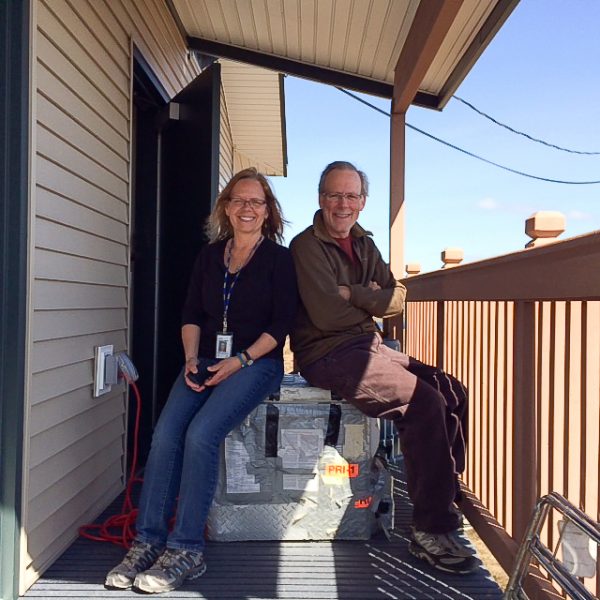New UAF research center moves science from bench to bedside
August 2, 2016
Marie Thoms
907-474-7412

ÐÓ°Épro and Montana have formed a collaborative clinical and translational research center to address the health priorities of ÐÓ°Épro Native and American Indian people.
Led by Professor Allen Harmsen at Montana State University, in collaboration with the ÐÓ°Épro, the center's primary goal is to increase the number of scientists who can work effectively with indigenous people. The center is funded with a five-year, $20 million award from the National Institutes of Health.
âThe people we want to attract are scientists in ÐÓ°Épro and Montana who have maybe thought that their work could be clinical or translational, meaning working with humans, but donât know how to transition their science in that direction,â said the new center's co-program director, Bert Boyer. He also directs the Center for ÐÓ°Épro Native Health Research at the UAF Institute of Arctic Biology.
Other collaborators include the ÐÓ°Épro Native Tribal Health Consortium, ÐÓ°Éproâs Southcentral Foundation, University of ÐÓ°Épro Anchorage, University of Montana and the Blackfeet Community College in Montana.
The center will provide mentoring, training and research opportunities, including project funds, to scientists in ÐÓ°Épro and Montana working in five core areas: professional development, pilot research projects, epidemiology and biostatistics, research design and evaluation, and community engagement and outreach.
American Indian and ÐÓ°Épro Native communities are reported to experience the most significant health disparities of any ethnic or racial group in the United States.
âOur goal is to build both ÐÓ°Éproâs and Montanaâs capacity to successfully address the health priorities of American Indian and ÐÓ°Épro Native people,â said Boyer. âThrough the Center for ÐÓ°Épro Native Health Research, we have developed considerable expertise in community-based participatory research in ÐÓ°Épro.â
UAF will lead the community engagement and outreach core.
âThe UAF core will provide guidance in community-based participatory research and offer regional support to navigate the development of respectful research partnerships with American Indian and ÐÓ°Épro Native people in Montana and ÐÓ°Épro,â said Scarlett Hopkins, a researcher at CANHR.
Hopkins will lead a team of site directors at the University of Montana, Montana State University, Blackfeet Community College and Southcentral Foundation in developing an innovative case study curriculum. The curriculum, based on American Indian-ÐÓ°Épro Native research experiences from study sites in ÐÓ°Épro and Montana, will be designed for scientists new to community-engaged research.
âRegional clinical research navigators will support investigators in the development and implementation of culturally appropriate translational research with American Indian and ÐÓ°Épro Native communities,â said Hopkins.
The center will also seek to partner academic institutions that do not have medical schools with Native healthcare institutions to further encourage collaboration between academic and medical researchers.
âWe anticipate this collaboration will grow sustainable programs in ÐÓ°Épro and Montana that will result in improved health of the communities we strive to serve,â said Boyer.
ADDITIONAL CONTACTS: Bert Boyer, professor, director, Center for ÐÓ°Épro Native Health Research, Institute of Arctic Biology, ÐÓ°Épro, bboyer@alaska.edu, 907-474-7733. Scarlett Hopkins, director, community engagement and clinical support core, Center for ÐÓ°Épro Native Health Research, Institute of Arctic Biology, University of ÐÓ°Épro Fairbanks, sehopkins@alaska.edu, 907-474-5693.
ADDITIONAL INFORMATION:
Research reported in this publication was supported by the National Institute Of General Medical Sciences of the National Institutes of Health under Award Number U54GM115371. The content is solely the responsibility of the authors and does not necessarily represent the official views of the National Institutes of Health.


